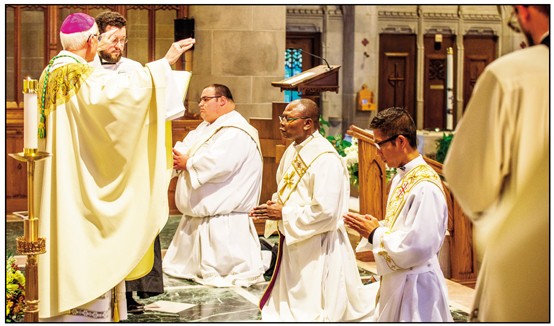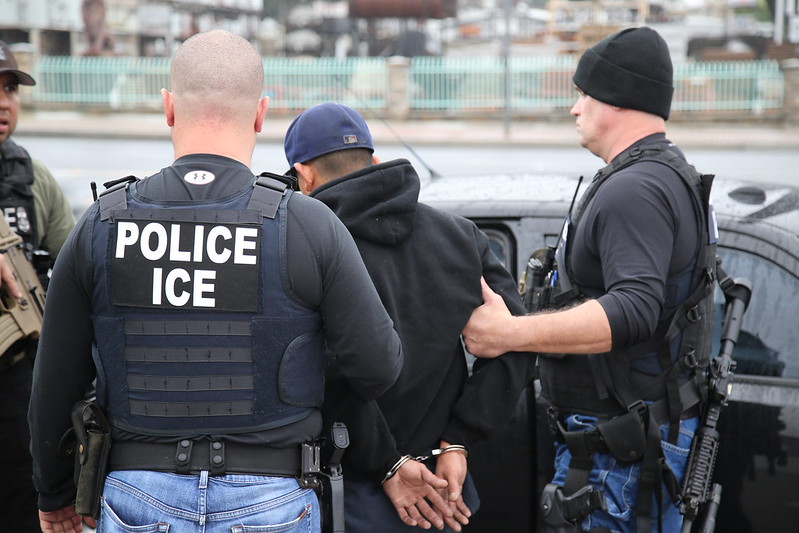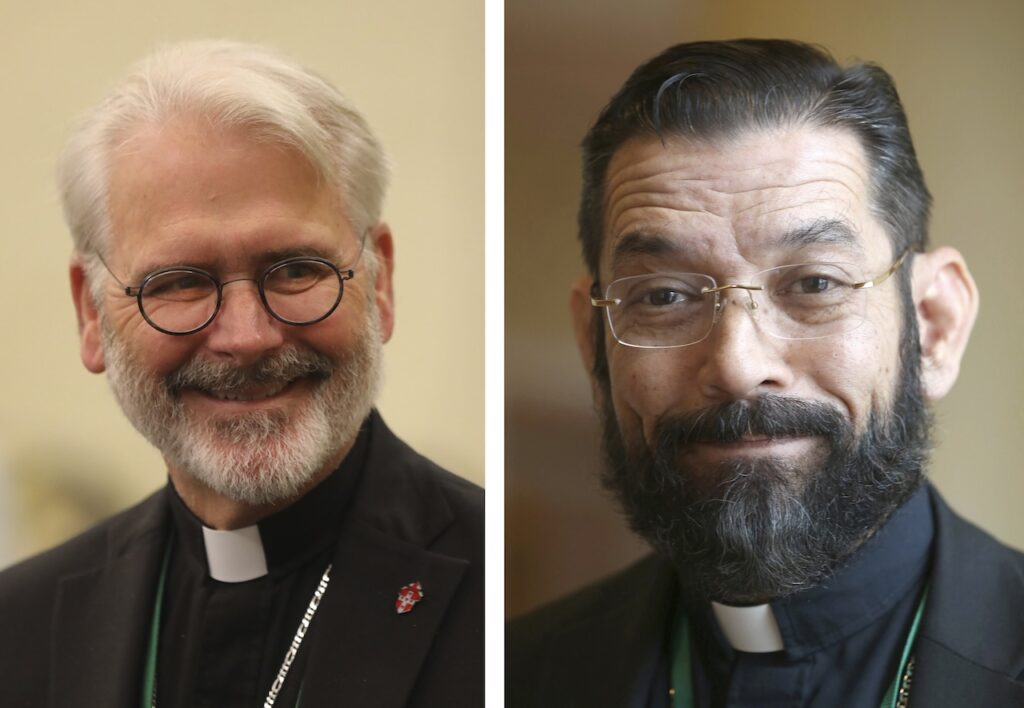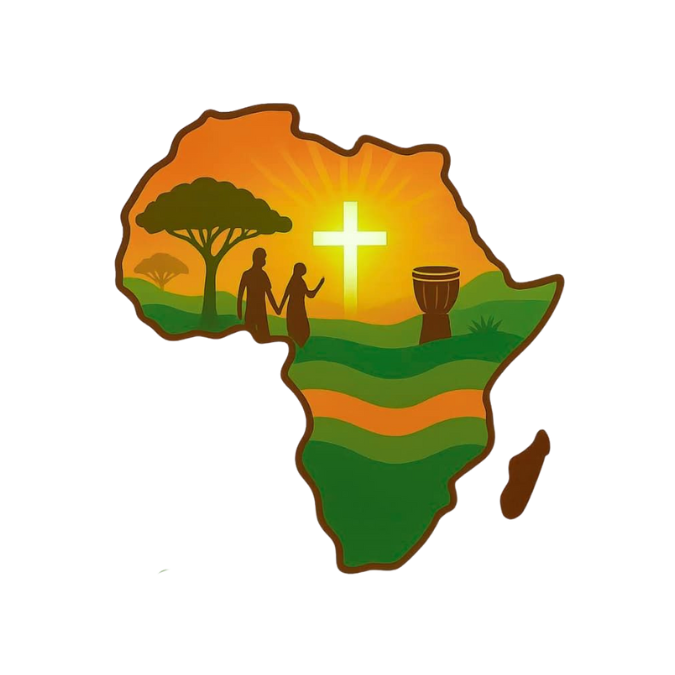
The recent story of Father John K. Ojuok, a Kenyan priest serving in the Diocese of Ogdensburg in upstate New York, is a small local news item that reveals a much larger crisis. Fr. Ojuok, who had been ministering legally in the United States on an R-1 religious worker visa, travelled home to Kenya in September to visit his mother and renew the visa stamp in his passport. The interview at the U.S. Embassy went well, but days later, the Embassy refused to issue the renewed stamp without explanation. He is now stranded in Kenya, unable to return to his parish, while his diocese has warned all foreign-born clergy to avoid international travel for fear of similar problems.
Fr. Ojuok is not alone. A Nigerian priest who was supposed to have taken up a position at my parish of residence, St Celestine Parish, Elmwood Park, since June has been unable to obtain a visa from the U.S. Embassy in Nigeria, even though he has all the required documents!!!
In August 2025, Father Gustavo Santos, a Venezuelan priest serving in South Florida on a valid R-1 visa, was unexpectedly denied re-entry to the U.S. upon returning from an overseas trip; he was allowed back only after intervention by his archbishop, lawyers, and a federal judge. In Texas, Rev. James Eliud Ngahu Mwangi, a Kenyan Anglican priest with a work permit valid through 2029, was nevertheless detained by Immigration and Customs Enforcement on the grounds of a prior visa overstay. Catholic, Episcopal, and other church leaders now describe a “perfect storm” in which enforcement zeal, procedural changes, and visa backlogs collide with the Church’s growing dependence on international clergy.
Behind these cases lies a deeper structural vulnerability for African clergy in the diaspora. Under current U.S. law, religious workers typically enter on the temporary R-1 visa, which allows them to live and minister in the country for up to five years, after which they must leave for at least one year before possibly returning. Many then seek permanent residence through the EB-4 “special immigrant” category. But recent policy shifts and backlogs in that category have created a bottleneck: thousands of priests and religious now face the possibility of having to leave when their temporary status expires, even if their green-card applications are pending.
This is not a marginal issue. The National Study of Catholic Priests (2022) found that about 24% of priests serving in the U.S. are foreign-born, and a significant share of these were ordained outside the United States. In some dioceses, particularly rural or demographically declining ones, international clergy—many from Africa—are essential to keeping parishes open and the Eucharist regularly celebrated. At the same time, a 40% decline in the total number of U.S. priests since 1970 has only deepened the Church’s reliance on priests from the global South.

This situation must be read within the wider context of anti-immigration sentiments and anti-black and brown immigration policies that intensified in the Trump administration. These draconian and inhuman policies are part of what the U.S. Conference of Catholic Bishops (USCCB), in its recent “special message” on immigration, identifies as “dehumanizing rhetoric and violence” directed at immigrants. The bishops write with moral urgency: “We are disturbed when we see among our people a climate of fear and anxiety around questions of profiling and immigration enforcement. We are saddened by the vilification of immigrants… We lament that some immigrants in the United States have arbitrarily lost their legal status.” Their prophetic cry echoes across the Church today.
The Ojuok case, therefore, becomes emblematic: if one priest with apparently proper status can be denied a visa stamp without an apparent reason, then every African priest on temporary status lives with the quiet anxiety that a routine trip home—for a sick parent, a funeral, a retreat—could end with being locked out of his parish and people. If such “obstacles and prejudices” confront priests with legal status, one can only imagine what the rest of the people of God endure. I know many immigrants who have gone into hiding, and many African Americans who are reliving the experiences of racial profiling and intimidation through ICE enforcement squads that have swamped cities like Chicago, New York, Baltimore, and Portland. It is telling that the Ogdensburg diocese’s immediate pastoral response was to advise foreign-born clergy to stay in the U.S. What does it mean when pastors of migrant flocks are discouraged from visiting their own families, cultures, and home churches because the border has become a pastoral minefield?
For African clergy in the diaspora, the impact is particularly sharp: First, it creates pastoral instability. African priests and religious are often placed in the most stretched or fragile settings: rural American parishes, inner-city communities, or migrant chaplaincies where they serve not only fellow Africans but a mosaic of cultures. When one priest is suddenly stranded abroad or detained, communities that already feel peripheral are left without their primary spiritual anchor, and the remaining clergy are overburdened.
Second, it imposes a hidden cost of isolation. Many African clergy carry heavy transnational responsibilities—aging parents, siblings’ school fees, and leadership roles in their home dioceses. A climate in which bishops quietly say, “Do not travel if you can avoid it,” forces them to choose between their mission in the diaspora and their obligations to their own families and local churches in Africa. This challenge is nationwide. In the Archdiocese of Baltimore, Fr. Proffitt, the Vicar for priests, reported recently that the archdiocese may lose the services of more than 15 priests—most from Africa—if the current visa policy does not change. “If this law does not get changed,” he warned, “we will be without the priests, and it will cause a lot of holes.”
Third, there is a wound to dignity and belonging. These priests and sisters are entrusted with sacramental leadership and pastoral care; they are treated as fathers and mothers of the community. Yet in civil terms, their status can be provisional, revocable, and subject to opaque bureaucratic decisions. The message, even if unintended, is that they are indispensable for ministry but dispensable as persons. This contradicts any serious theology of human dignity and the equal membership of all baptized in the Body of Christ.
This prevailing situation calls on the Catholic Church in America and around the world to a prophetic denunciation of the racist mindset behind these immigration policies. As David French argues in his recent New York Times article, the Catholic Church “enjoys some profound advantages over the American evangelical church” in serving as the conscience of the nation without being either its master or its servant. Because Catholicism’s social justice tradition is over a thousand years old and transcends any presentist political calculus, it can speak with moral clarity where partisan voices cannot. Evangelical churches in America, by contrast, were founded here and remain rooted in America, with a distinct, America-centred political worldview; they often become yoked to partisan affiliations. This is why, French argues, their confidence rises and falls with election results. The Catholic Church must chart a different path rooted in justice, compassion, and human dignity.

The wider Church has begun to respond. The USCCB strongly supports the bipartisan Religious Workforce Protection Act, which would allow religious workers already in the U.S. on R-1 visas with pending EB-4 applications to remain while they await permanent residency. A high-profile lawsuit by the Diocese of Paterson over religious-worker visas was recently dropped in anticipation of a policy fix—an indication that bishops now recognize immigration law as a frontline pastoral issue rather than a peripheral technicality.
For African bishops and networks, especially those who send priests to serve in Europe and North America, this moment calls for a new missionary realism. When a young priest is “loaned” to a diocese in the global North, his superiors must consider not only cultural adaptation and pastoral fit, but immigration risk, legal support, and contingency plans if his status is disrupted. Diaspora ministry can no longer be imagined simply as a generous export of personnel; it must be framed as a shared ecclesial project, a gift exchange as the Synod on Synodality calls it, that includes advocacy for just migration policies and robust protection of the ministers themselves. African bishops at continental, regional, and national levels must proactively develop clear and robust protocols, policies, and strategies for missionary exchange that protect the dignity, rights, health, and well-being of Africans on mission in the U.S. The current conditions are unhealthy and unsustainable. I have seen too many African priests and sisters suffering in immigration limbo, feeling disposable, expendable, lost, and unappreciated.
If the Catholic Church in the global North increasingly depends on African clergy to keep the doors of its churches open and to celebrate the Eucharist and other sacraments in forgotten places, then it also has a moral obligation to ensure that these “pastors of hope” are not treated as temporary sacramental workers. To love them, in the spirit of Dilexi Te, is to stand beside them in the immigration line, in the detention center, and in the legislative chamber—until the borders they cross for the sake of the Gospel no longer threaten to sever them from the people they serve or from the homes that first taught them to pray.




1 comment
[…] Religious Worker Visa – “The recent story of Father John K. Ojuok, a Kenyan priest serving in the Diocese of Ogdensburg in upstate New York, is a small local news item that reveals a much larger crisis.” Stranded African Shepherds: How U.S. Visa Policies Are Hurting African Priests and Their Communities […]